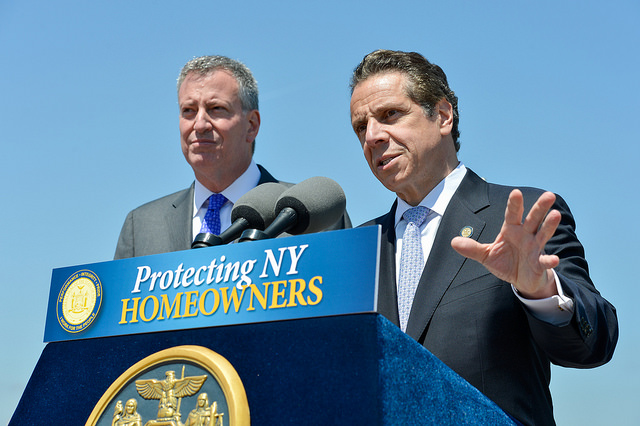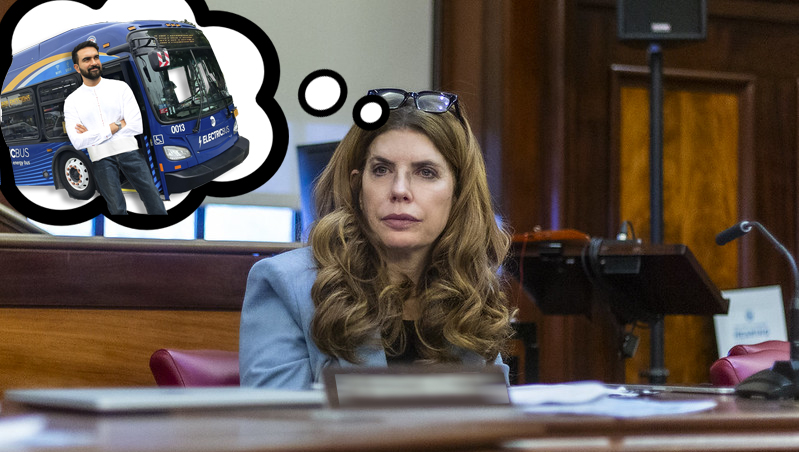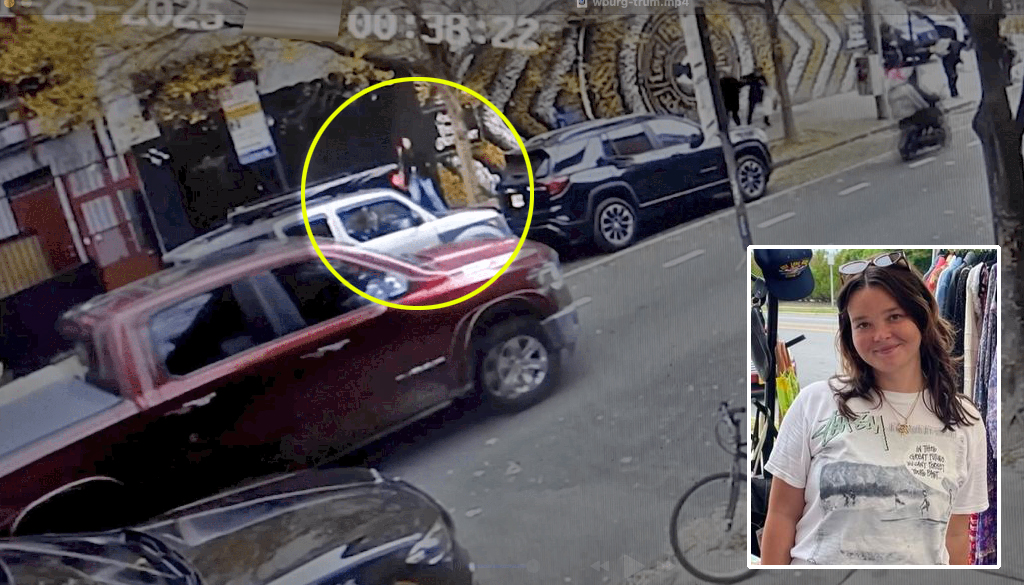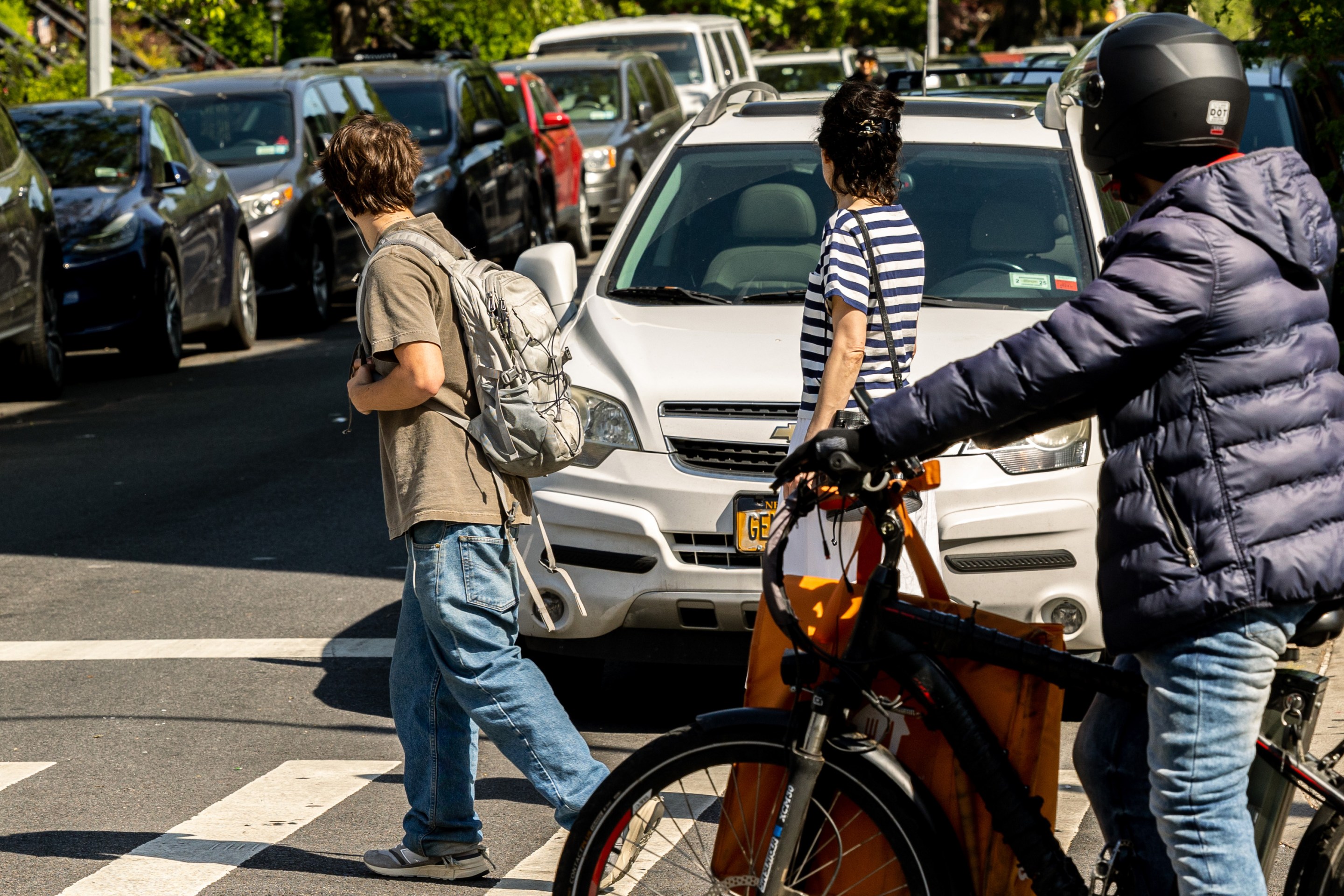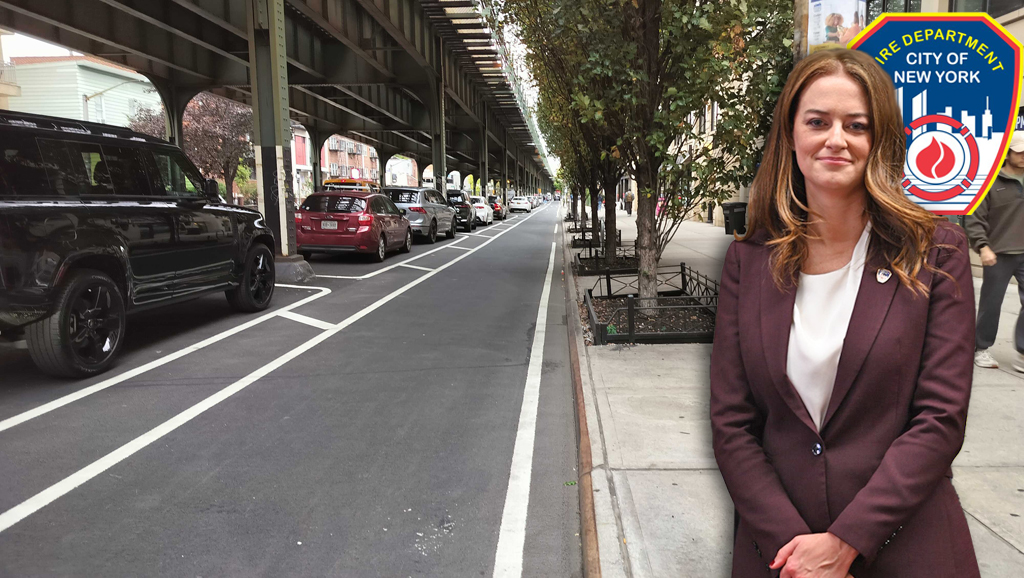Will Andrew Cuomo's congestion pricing plan deliver the goods and rid NYC of its most debilitating traffic jams? It's still anyone's guess.
In cryptic remarks at his budget address yesterday, Cuomo said his plan will "define a pricing zone" but "doesn't toll bridges."
"It uses new technology that can define a geographic zone," he said. "If you drive into that zone at certain times you can pay a toll increase… We have to define the zone, we have to determine the fees, we have to determine the hours." A full report from his Fix NYC commission is coming at the end of the week.
Cuomo is describing the core traits of a real congestion pricing system: charging all motorists traveling within a prescribed area, with a variable fee that rises and falls in response to the intensity of traffic.
But it's hard to imagine an effective congestion pricing plan for New York City that doesn't toll the free East River bridges.
The price differential between the MTA's tolled East River crossings and the four free bridges leads to "toll shopping" that manifests as crushing traffic jams on streets approaching the bridges. More than 450,000 motor vehicles enter or leave Manhattan via those four bridges on a typical weekday. Much of the benefit of the Move NY toll reform plan derives from equalizing the tolls on all East River crossings and eliminating the incentive to toll shop.
A plan that doesn't toll drivers crossing the East River -- drawing a cordon around the heart of Midtown, for instance -- might appease congestion pricing opponents like Eastern Queens Assembly Member David Weprin, but it won't deliver the regionally significant traffic reduction that a plan like Move NY would.
Under Move NY, bus riders in western Queens and downtown Brooklyn would notice the drop in traffic. With fewer cars clogging the streets, they would get faster, more reliable trips. A smaller pricing zone won't ripple out the same way -- it will speed up Midtown trips for the Uber-riding class and not much else.
A kinder interpretation of Cuomo is that he doesn't intend to toll the actual bridges, but will define the cordon so drivers crossing the bridges can connect to the FDR Drive without paying a fee. All drivers who use the local street network would still pay. In effect, this would toll most bridge traffic -- which is good policy but an awkward fit with his comments yesterday.
So is Bill de Blasio on the case, pressing the governor to get the details right? A small pricing zone has big implications not only for traffic and bus service, but for transit fares. It wouldn't raise nearly as much revenue for the MTA capital plan as Move NY, which means straphangers would be on the hook instead in the form of higher fares.
Preventing future fare hikes should be something a good progressive like de Blasio is directly attuned to. Of course, none of that registered with mayor motorhead:
.@NYCMayor on congestion pricing: "If it particularly effects Brooklyn and Queens, how do you make sure it’s fair to Brooklyn and Queens? What does Brooklyn and Queens get back from the equation?"
— Jillian Jorgensen (@Jill_Jorgensen) January 16, 2018
"Brooklyn and Queens," in de Blasio's mind, refer to the small, mostly affluent cadre of residents who car commute to Manhattan, not the millions of people who are dealing with worse transit service and steadily rising fares.
Not to be outdone in this arena, Cuomo's draft budget doesn't say anything about congestion pricing revenues reducing the need for fare-backed debt at the MTA. In fact, Politico reports, it shifts the burden of paying for subway and bus investments to City Hall and de Blasio, who would be expected to come up with several billion dollars each year.
It's an outrageous power play that "comes from an alternate reality," Reinvent Albany director John Kaehny told Politico. As a Cuomo strong-arm tactic to open negotiations over congestion pricing, it's a little less outrageous. But is his congestion pricing plan even worth supporting? We'll know more by the end of the week.
